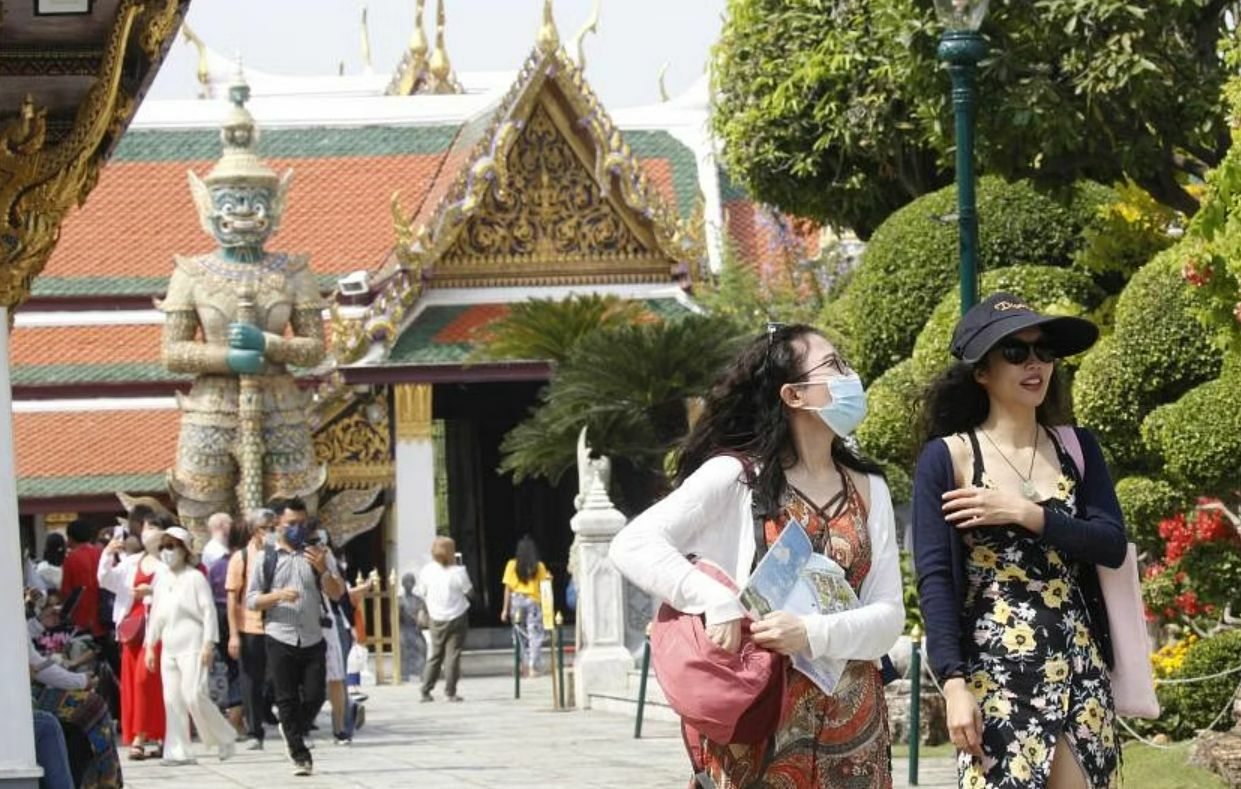Thai tourism faces strain from sluggish Chinese, Japanese economies

Tourism operators in Thailand are facing significant challenges due to the sluggish economies of China and Japan and an uneven recovery in Thai tourism that benefits larger operators. A recent survey by the Thai Hotels Association (THA) and the Bank of Thailand revealed that 29% of three-star or lower-rated hotels have been severely impacted by interest rate hikes and may require debt restructuring.
The Tourism Council of Thailand (TCT) anticipates this trend continuing into the third quarter, with 34% of respondents uncertain about the Thai tourism outlook and 19% expecting to earn less than in the previous quarter.
Chamnan Srisawat, president of the TCT, stated that facilitating equal business opportunities for small and medium-sized enterprises (SMEs) poses a significant hurdle for the new government.
“After Covid-19, a K-shaped recovery has been apparent as the rich got richer, while SMEs, which account for 34% of tourism enterprises, severely struggled to maintain their businesses.”
He suggests that the government could support these businesses by amending laws that hinder business registration and incentivise the private sector to improve digital capabilities for smart and green services. This could bolster the Thai tourism industry amid intense competition from other countries.
Marisa Sukosol Nunbhakdi, president of THA, highlighted that high-interest rates have placed financial strain on most hotels due to increasing debt. Lower-rated hotels have been particularly affected as they compete for tourists in a weaker-than-expected inbound market. Despite China remaining the top source market with 2.79 million travellers, this figure falls short of hotel operators’ predictions. Indeed, 61% of hotels anticipated registering less than 20% of Chinese guests this year compared to 2019, reported Bangkok Post.
Marisa believes the new government should prioritise assisting small operators.
“Most of them are located in second-tier destinations that could not benefit from the subsidy programmes during the pandemic, unlike five-star hotels in major provinces that received relatively high bookings from domestic tourists and could maintain good room rates from high-spending foreigners after the reopening.”
With China’s GDP increasing by just 5.5% in the first half and a weak yen discouraging Japanese tourists from travelling abroad, Thailand may struggle to attract 27 million tourists this year. In 2019, Chinese and Japanese tourist markets accounted for approximately 33% of total international tourism revenue of 1.9 trillion baht.
To boost tourism revenue, the Thai government should consider investing in or incentivising environmentally friendly, man-made projects to attract domestic travellers. Meanwhile, the recent commitment from new prime minister Srettha Thavisin to improve the Thai tourism industry is encouraging, but the industry still needs additional budget to stimulate sluggish domestic and international demand in the final quarter.
Follow The Thaiger’s latest stories on our new Facebook page HERE.
Latest Thailand News
Follow The Thaiger on Google News:


























